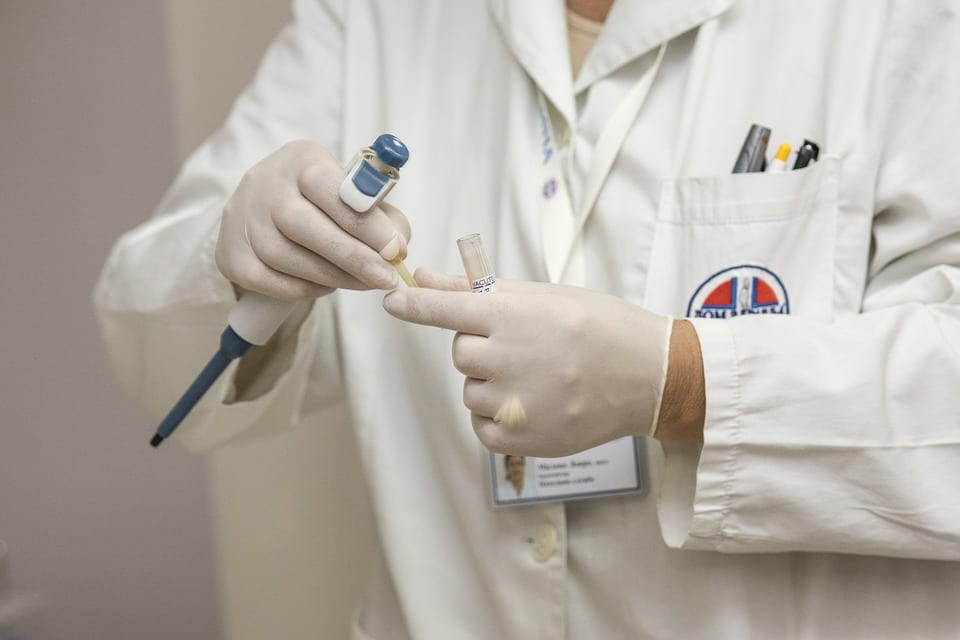Organ donation and transplantation saves lives – hundreds of thousands of them. My own sister is one of those lives; she received two lungs from a consenting donor and her family four-and-a-half years ago, and, without their selfless gift, two families would have been holding funerals for members gone far too soon instead of one.
Which is all to say, I am a proponent of organ donation. Everyone should register and inform your family of your wishes in the event that tragedy strikes and they’re left with a decision to make as they deal with their grief.
But that’s consensual organ donation. Harvesting organs from non-consenting executed prisoners – prisoners whose crimes are dubious at best – is a horrific practice that should be receiving more condemnation worldwide.
Because it is almost certainly happening in China, and the global public seems not to care much about it.

Image Credit: Pixabay
The reason for this appalling system is that for years China had a shortage of organs being donated. The shortage led to illegal trafficking – organs are big money, after all – which led to forced organ harvesting, largely from a group of political prisoners: the Falun Gong.
Falun Gong has over 70 million members, making them the second largest faith community in China, and they preach meditation, mindfulness, and exercise. But despite their commitment to non-violence, the Chinese Communist Party has marked them as a dangerous cult and subjected them to widespread surveillance, imprisonment, torture, and execution without trial.

Image Credit: Wikipedia
The fact that they’re an extremely healthy group of people who don’t smoke or drink and who exercise regularly made them appealing donors. Dozens of practitioners report having regular health check-ups while in prison, including blood tests.
Some say their religious practices made them particularly ripe for the picking, and that their executions were for the sole purpose of stealing and selling their organs.
“I was illegally detained three times and was forced to submit to a physical exam each time. I didn’t understand why we had to have physicals done,” Chen Ying, a Falun Gong practitioner, wrote on a blog. “The guard’s answer was, ‘It’s a routine process.’ The way they conducted the exam made me feel that they were not doing it out of consideration for me health but instead, they wanted to get something specific from the results.”

Image Credit: Pixabay
In 1995, Dr. Wang Guoqi worked for the Chinese Army at a Hebei Province prison. Years later, he testified about what he had seen there – and how it changed his life.
“My work required me to remove the skin and corneas from the corpses of over one hundred executed prisoners and on a couple of occasions, victims of intentionally botched executions.”
He’s not alone either. Dozens of others who have defected from China have spoken about similar horrors. Their stories were compiled into the Kilgour-Matas report, which is filled with damning evidence about forced organ donation in China.
One of the authors, David Kilgour, interviewed the ex-wife of a Chinese surgeon who claimed to have removed as many as 2,000 corneas from executed Falun Gong prisoners.
“Usually these Falun Gong practitioners were injected with a shot to cause heart failure. During the process these people would be pushed into operating rooms to have their organs removed. On the surface, the heart stopped beating, but the brain was still functioning, because of that shot. These people were then pushed to other operations rooms for removals of heart, liver, kidneys… After their kidneys, liver, and skin were removed, there were only bones and flesh left. The bodies were thrown into the boiler room at the hospital.”

Image Credit: Pixabay
China admits to the practice, but claims that they stopped harvesting organs without consent in 2015. Because of their reluctance to release official statistics about both executions and organ transplants, however, it’s hard to verify their claims.
Journalists and researchers all agree that there’s likely still shady stuff going on.
One major report, The Bloody Harvest/The Slaughter, claims that the number of organs taken from executed prisoners is “a state secret” and that there’s no doubt the number is much higher than China admits to publicly.
Another recently published study analyzed organ donation data between 2010 and 2018 and found a “systemic falsification and manipulation of official organ transplant dataset” that made them feel that China’s claims of reform were most likely untrue.
And with over 1 million transplants taking place since 2000 – in a country where cultural norms make people reluctant to become donors – who can blame them?
Another reason people are suspicious is that, outside of China, people wait months or years to receive a donor organ. Inside China, people routinely receive new organs in a matter of days or weeks, suggesting there’s some kind of “on-demand” system of obtaining matching organs.
There are plenty of reason why a system like this would be appealing to the government and hospitals – there’s a lot of money to be made selling organs, both domestically and internationally. It’s thought that “health tourists” from Japan, South Korea, and Taiwan regularly visit China for the sole purpose of procuring an organ.
Even though China maintains that all of its donors are voluntary, an independent tribunal has recently been established to look into the matter.
Perhaps we’ll find out at some point whether they have reformed their practices, or whether members of the Falun Gong – among other “prisoners of conscience” – are being executed and emptied of their healthy organs after death.
Or, as with most things about China, perhaps it will remain a closely kept state secret.






